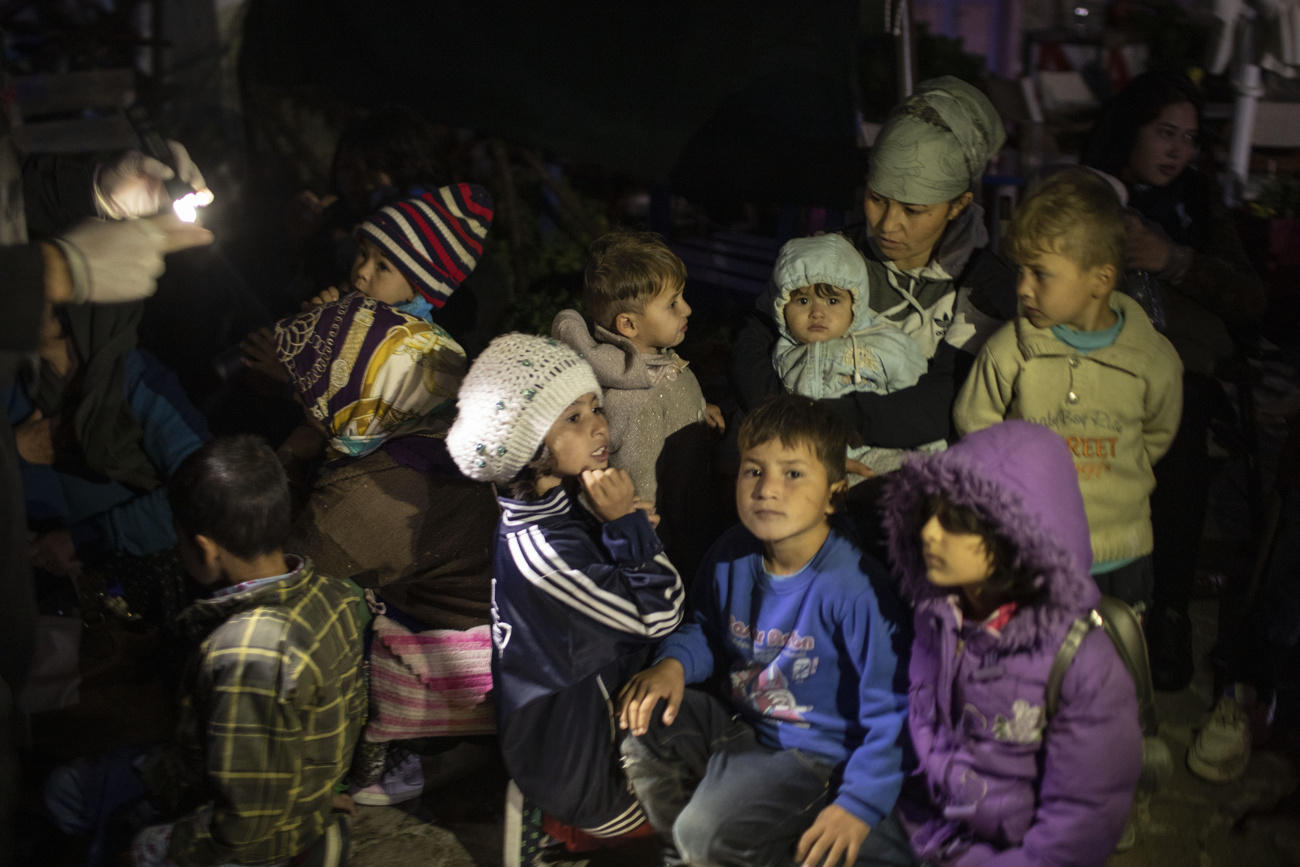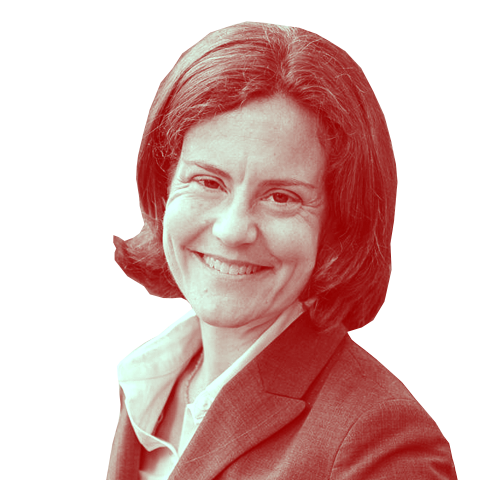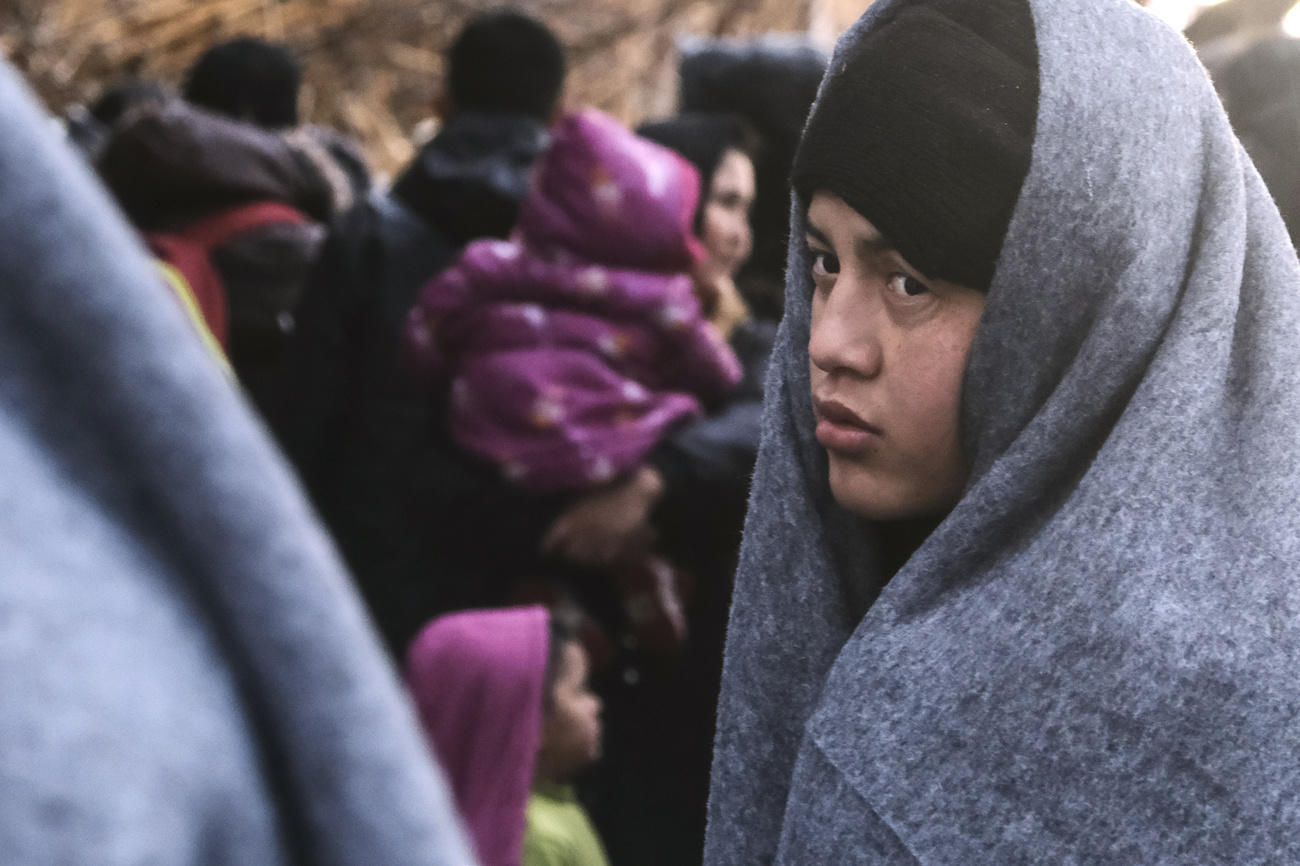Amid Covid-19, Switzerland should heed calls to host trapped refugees
A refugee law expert calls on Switzerland to help those at a camp in Greece following an appeal made by Swiss humanitarian groups on April 13.
Over 100 humanitarian groups in Switzerland, some Swiss media commentators, and some Swiss politicians and political parties have called upon the Swiss government to take in a portion of the refugees trapped in the overcrowded and unsanitary Moria refugee camp on the island of Lesbos in Greece, in light of the danger of a Covid-19 outbreak in the camp. This a reasonable, measured, and common sense solution that should be adopted immediately, before it is too late. As stated in an editorial by the April 4 edition of the renowned medical journal The Lancet, External link“Never has the ‘leave no one behind’ pledge felt more urgent.”
By accepting its fair share of refugees, Switzerland would demonstrate its solidarity with the poorer countries of the EU.
As of now, there are no reported cases of Covid-19 in the Moria camp, but doctors and public health experts warn that it is just a matter of time before disaster hits. Doctors without Borders has called for immediate evacuation. Once Covid-19 breaks out in the camps, it is unlikely to stay within refugee populations. Writing for Nature Medicine,External link public health experts urge governments to learn the lessons from past epidemics: an outbreak among one population endangers all.

More
Switzerland urged to take in refugees stranded in Greece
Current efforts by Switzerland
Germany and Luxembourg have already begun to accept some unaccompanied minors from the camp. Switzerland is currently preparing to accept 22 refugee minors in Greece with family members in Switzerland. Switzerland also recently pledged CHF 1.1 million to help protect people in refugee centers in the Greek islands from the virus. This is great, but it is not sufficient. Indeed, the Swiss government has come under sharp criticism for not doing enough.
Switzerland is, per capita, one of the wealthiest countries in the world with a strong humanitarian tradition. It boasts an outstanding, well-organized and robust NGO community that is eager and willing to help.
Compared with its per-capita wealth, Switzerland can accept many more refugees than it currently does. Asylum applications have dropped, hitting a 12-year low in 2019. Switzerland has begun an overseas resettlement program, which is great, but the numbers are still extremely modest. If Switzerland were to accept 5,000 refugees from Moria as an emergency measure, this would represent a population increase of significantly less than one tenth of one percent. It is wonderful that Switzerland is preparing to take in 22 unaccompanied minors, but let us appreciate for a moment how very small that number is. It is smaller than a classroom, less than one child per Swiss canton.
To put these numbers in perspective, in 2017, 84% of the world’s refugees lived in developing countries, while the countries with 57% of the world’s GDP had less than 9% of the world’s refugees and asylum seekers. In 2018, Lebanon hosted 156 refugees per 1,000 inhabitants, Jordan hosted 72 per 1,000, and Turkey 45 per 1,000. In contrast, high-income countries, of which Switzerland is one, host on average about 2.7 refugees per 1,000 people (though Sweden hosted an impressive 25 per 1,000). These disparities do not even take into account the differences in per-capita wealth between Switzerland and countries in the developing world.
Unfortunately, public perception is radically out of line with these relatively small numbers. From the salience of discussions of refugee integration challenges in the Swiss press, one would think that Switzerland had a much larger population of refugees than it does.
Some politicians have expressed the position that Switzerland should not “go it alone”. But this concern is misguided and has been criticized as merely an excuse. Indeed, the opposite is true. This is a classic collective action problem. If the refugees in the Greek camps were distributed equitably among the countries of Europe, there would be more than enough room and ability to integrate them, but no single country wants to commit to taking in a significant number of refugees without assurances that its neighbors will also do so. Switzerland, with its humanitarian tradition, high per-capita wealth, strong NGO community, relatively small number of refugees, independence from the EU, and excellent international reputation, should lead the way. By accepting its fair share of refugees, Switzerland would demonstrate its solidarity with the poorer countries of the EU, like Greece and Italy, who have a disproportionate number of refugees relative to their resources, and set an example to the rest of Europe.
Contact with refugees
When I hear anti-refugee sentiment in Switzerland, I often wonder if the speaker has any direct experience with refugees. Have they seen the families and young men joking around over coffee and cookies with the Swiss ladies who teach German at our neighborhood church? Do they know people like the young man with impeccable manners whom I tutored, who studied computer science in Afghanistan, speaks excellent German, worked as a cleaner in a restaurant, and spent every spare moment studying English so that he could win a coveted spot in the Powercoders IT training program? Have they eaten dinner with a refugee? Do they know young people like the college students in the US and here in Switzerland who are so academically promising? What about the network of Syrian refugees in Geneva and Lausanne who volunteer to run errands for elderly and infirm Swiss to keep them safe from Covid-19?
I am biased, of course. I am biased because I come from a country that was once made great by refugees – from the Pennsylvania Dutch and Swiss German-speaking Amish and Mennonite communities who fled religious persecution in Switzerland to a rather well-known ETH Zurich student and professor. When I think of a “refugee”, I do not think of a legal abstraction. I think of my students, friends, colleagues, clients and the parents and grandparents of so many Americans I know. I think of all the refugees who have served my country well.
Unfortunately, the government of my country, the United States, is turning its back on refugees and asylum-seekers and many other types of immigrants. Many Swiss citizens of all backgrounds are on the front lines of efforts to help individuals in the camps and encourage the Swiss government to do more. I hope the government of Switzerland has the courage to listen and to lead by example.
Alexandra Dufresne taught Immigration and Refugee Law at Yale from 2006-2015 and currently teaches law at several institutions of higher education in Switzerland. She has served or currently serves on the Boards of several refugee services NGOs in the U.S. and Europe: IRIS, Asylos and New Women Connectors. She writes frequently about law and politics.
The views expressed in this article are solely those of the author, and do not necessarily reflect the views of swissinfo.ch.
Opinion series
swissinfo.ch publishes op-ed articles by contributors writing on a wide range of topics – Swiss issues or those that impact Switzerland. The selection of articles presents a diversity of opinions designed to enrich the debate on the issues discussed. If you would like to submit an idea for an opinion piece, please e-mail english@swissinfo.ch

In compliance with the JTI standards
More: SWI swissinfo.ch certified by the Journalism Trust Initiative



You can find an overview of ongoing debates with our journalists here. Please join us!
If you want to start a conversation about a topic raised in this article or want to report factual errors, email us at english@swissinfo.ch.